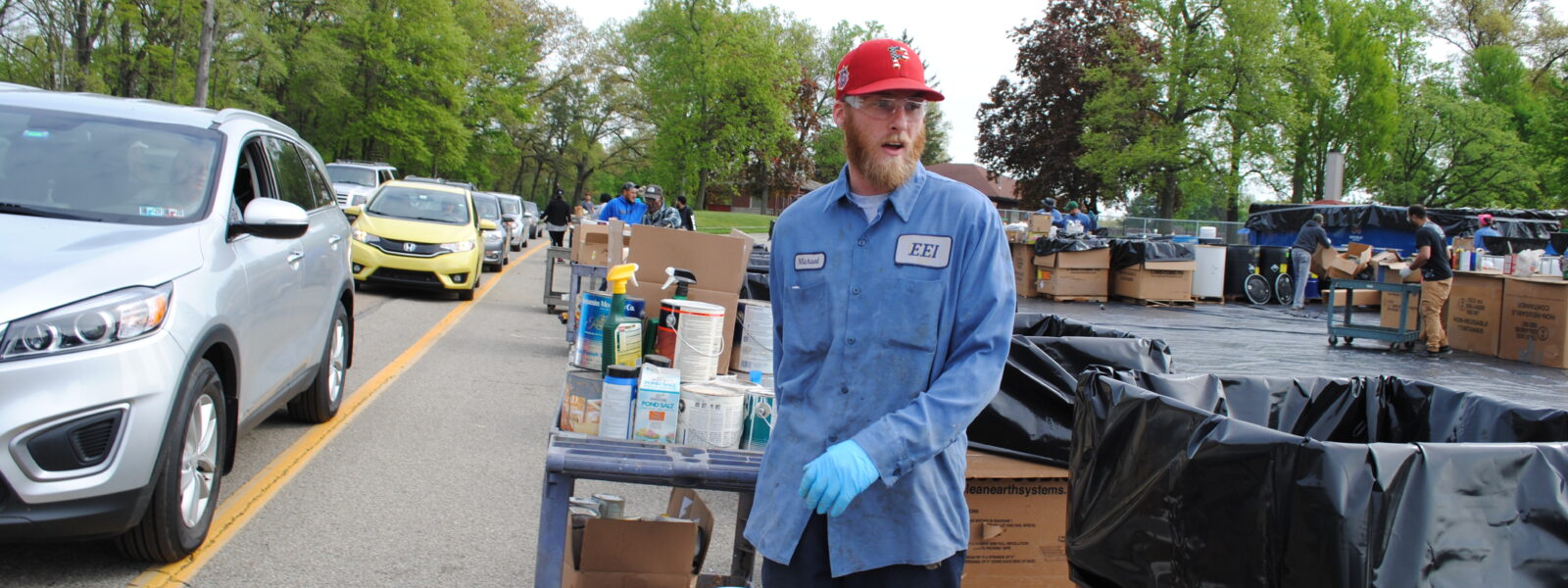The Pennsylvania Resources Council (PRC) – a statewide environmental organization dedicated to reducing waste – celebrates a milestone in 2022 as it launches the 20th season of hosting household chemical collection events: responsibly managing 6 million pounds of chemical products dropped off by residents of southwestern Pennsylvania.
“A typical home contains 100 pounds of hazardous chemicals, according to the EPA, and while many of these products are safe, problems arise when you use or dispose of them improperly,” says PRC Executive Director Darren Spielman. “At each event, a certified contractor processes the materials for proper disposal. Materials are recycled or safely managed.”
Since launching household chemical collection events in 2003, PRC and its partners have collected 6 million pounds of cleaners, paints, stains, automotive fluids, pesticides and other products from 60,000+ households during 100+ collections.
In 2022, PRC will host nine events in five counties:
- April 16 – PPG Paints Arena surface parking lots, Allegheny County
- April 30 – Bradys Run Park, Beaver County
- May 7 – North Park, Allegheny County
- May 21 – Concurrent Technologies Corp. ETF Facility, Johnstown, Cambria County
- June 18 – Fayette County Recycling Convenience Center, Fayette County
- June 25 – Wild Things Park, Washington County
- August 20 – Boyce Park, Allegheny County
- September 10 – South Park, Allegheny County
- October 8 – Bradys Run Park, Beaver County
Registration is required.
CLICK HERE for event details and registration link.
“While the majority of materials dropped off at collections are common products such as automotive fluids, paints and cleaning products, we have received strychnine, liquid mercury and bags of DDT,” says Spielman. “We are proud of our 20 years of hard work protecting the environment from hazardous waste – safeguarding habitats and communities. We thank the many supporters over the past two decades who have helped PRC to serve more than 60,000 households, and we look forward to serving many more in communities across the state in the future.”


